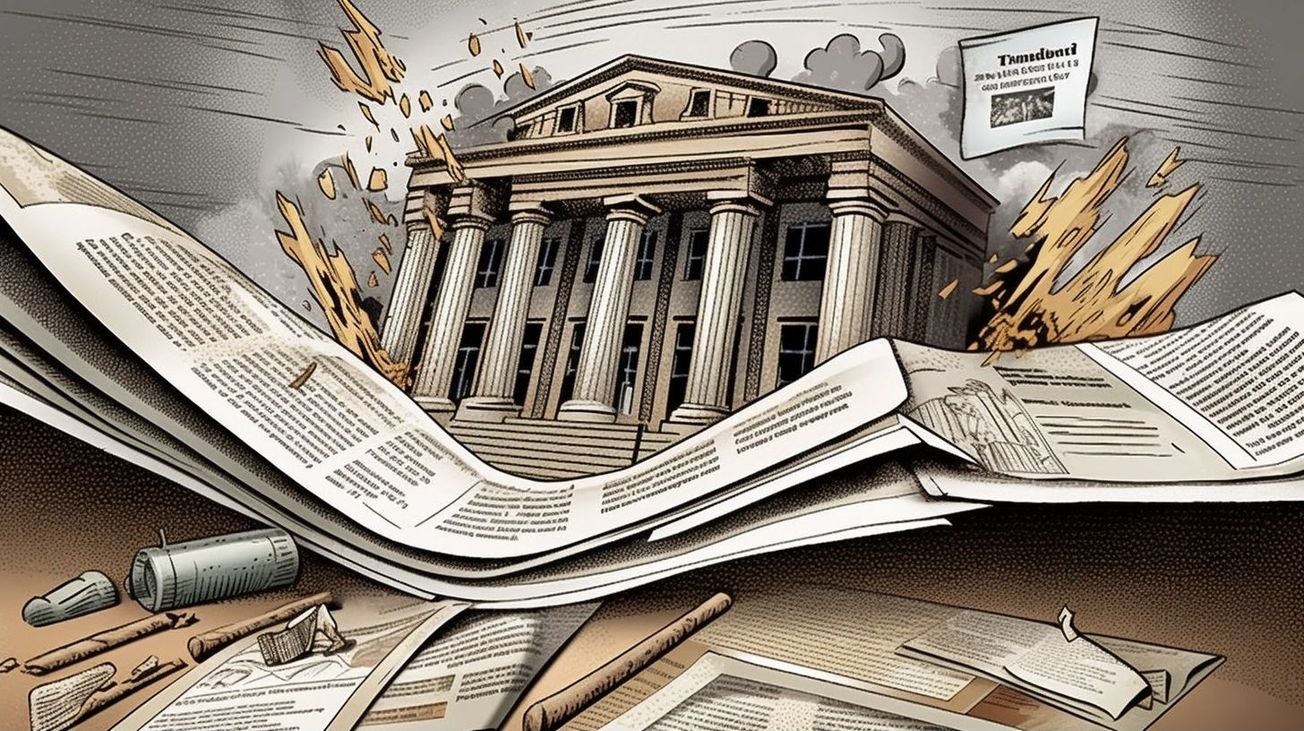President Joe Biden has announced that the banking crisis is not yet over, despite his efforts to address it with available authorities. The failures of Silicon Valley Bank and Signature Bank have led to a broader loss of investor confidence in the banking sector, causing stocks to plummet and stoking fears of a full-blown financial crisis. While a deal was recently made to rescue Swiss bank Credit Suisse and SVB's assets were sold to First Citizens Bancshares, investors remain wary of more troubles lurking in the financial system.
According to analysts, top policymakers, and bankers alike, credit will tighten in the aftermath of these failures. This means that banks will be more conservative with credit moving forward, which could become a self-fulfilling prophecy. The failures were caused by Silicon Valley Bank's outsize deposit exposure to vulnerable technology startups and Signature Bank's deep dive into struggling cryptocurrency markets.
Serial entrepreneur and billionaire Elon Musk has also warned about an impending financial crisis due to commercial real estate debt and mortgages being a "serious threat" to the economy. Unlike the 2008 financial crisis where banks' assets were at fault, this time around it is not about asset quality but rather about commercial real estate debt maturing over the next five years - more than $2.5 trillion worth.
Many borrowers with variable interest rates have already seen their monthly payments soar as they struggle with payments on commercial real estate loans during an economic downturn caused by COVID-19 restrictions on businesses worldwide. It remains unclear how much longer this trend will continue before leading institutions begin collapsing under their own weight.
The Federal Reserve has attempted several measures aimed at stabilizing markets during times of volatility such as these but its approach may no longer be effective given that interest rates are already near zero percent – leaving little room for further stimulus if things do go south again soon after recovering from one setback.
Furthermore, there is concern among some experts that central banks may have exhausted all their policy tools, leaving them with little ammunition left to fight off another financial crisis. This is because the previous crises saw central banks lower interest rates and inject money into the economy through quantitative easing programs. However, these measures have already been taken to their limits in most countries around the world.
The banking crisis has also been exacerbated by geopolitical tensions between China and the United States. The two largest economies in the world have been locked in a trade war since 2018 which has led to some instability within global markets. The effects of this tension on banking institutions are not yet clear but it could lead to further complications down the line.
It is unclear how long it will take for banks and investors to fully recover from these recent failures and losses of confidence. In addition, there are concerns about how future economic downturns might impact financial institutions that are already struggling due to commercial real estate debt maturing over the next five years.
While there have been efforts made by governments and central banks around the world to stabilize markets during times of volatility such as these, there remains concern among experts that policy tools may be exhausted - leaving little room for further stimulus if things do go south again soon after recovering from one setback or another. It is important for both individual investors as well as institutional players alike to remain vigilant in monitoring developments within their own portfolios so they can react accordingly should any new risks present themselves down the road.
Credit tightening expected after banking failures
President Joe Biden has announced that the banking crisis is not yet over, despite his efforts to address it with available authorities.









